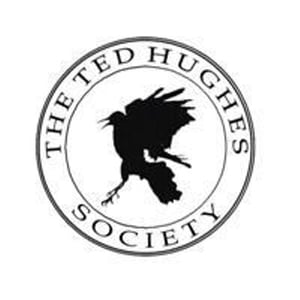Rights and Permissions
Rights and Permissions for Hughes's Work
The Ted Hughes Society is not affiliated with the Ted Hughes Estate and can in no way answer enquiries or requests for copyright permission on their behalf.
Rights and Permissions for Ted Hughes's works are handled exclusively by Faber & Faber on behalf of the Estate of Ted Hughes. For more details please visit Faber's Permissions Website.
Statement from Faber and Faber on Fair Use Provision
The following is a statement sent by Faber and Faber's permissions department in response to a letter from Prof. Terry Gifford, one of the editors of Ted Hughes: from Cambridge to Collected, which asked for clarification regarding Fair Dealing licensing for Hughes's works:
29 September 2013
Dear Terry,
Carol Hughes has very kindly passed on your letter of 15th August, 2013, to us here at Faber and Faber – a follow-up to that which you and the other editors of Ted Hughes: From Cambridge to Collected had sent earlier in the year. There are clearly some concerns regarding the licensing of Hughes published and unpublished material for academic criticism or review, and for the way we handle Fair Dealing requests. We would like to reassure yourselves and any future students of Hughes’ work by giving some detail on how we do handle these requests and why, for example, fees are sometimes charged for academic publications.
Licensing material under Fair Dealing is discretionary and rightsholders are entitled to handle any requests as they feel appropriate. As a general rule, we will license and waive fees for previously published material under Fair Dealing on the following conditions:
- that the print run of a publication does not exceed 500 hardbacks and 1500 paperbacks
- that a single extract taken from a play does not exceed more than 18 lines, or multiple extracts do not come to a total of more than 70 lines; that only 25% of a single poem is used (longer, narrative poems would be handled in the same way as a play); that a single extract of prose does not exceed 250 words, or multiple extracts do not come to a total of more than 800 words
Some confusion does arise as a result of the Fair Use protocol in the US. US publishers do make slightly different allowances so it is always worth contacting the US rightsholder for more information on how they handle these.
We handle every request on a case by case basis and we do read through every manuscript and double-check the word/line counts of any extracts from our authors. There is, for example, always consideration taken for a publication that will have a paperback print run of 2000 if the size of the extracts do still fall under the basic terms – wherever possible, we would waive fees for this use. At the moment, we do apply the same rules for electronic rights, the only exception being that they are licensed for a specific term. As I’m sure you can appreciate, this has to be done as there is no limit placed on these sales as there is in the print run of a publication. Provided we do still control these rights on behalf of an author or Estate, these electronic rights are renewable and we are very happy to review these requests again closer to expiry.
We, and Carol Hughes, cannot stress enough that we would wish for people to enjoy Hughes’ work and to study it in depth; however, occasionally there will be instances where we feel that Hughes’ work should be remunerated and we will quote our standard fees for these. One of the main anxieties seems to revolve around publications based on single authors. As these could never exist without an author or their work, we do now sometimes charge fees for the use of material as we feel that these are instances where an author and Estate should be able to receive nominal fees if they see fit – even if the extracts in question do fall under our Fair Dealing guidelines. Again, these are handled on a case by case basis and we do always discuss these with an Estate, each of whom have very different preferences. We would emphasise that the terms given for Ted Hughes: From Cambridge to Collected should not be seen to set a precedent for how any future Hughes-based monographs, essays or publications will be considered. There were several further exceptions here that we felt justified minimum fees for the use of material: a very short deadline for ourselves and the Estate to work through the final draft of the manuscript and do a word count for every extract, a print run of 5000 copies, the use of an unpublished poem, and a huge amount of guidance from the Estate.
You mention that you would like to pass this on to other academics or students of Hughes’ work and we would be grateful if you could do this, along with our email address (gapermissions@faber.co.uk) and our website information on Fair Dealing: http://www.faber.co.uk/about/contact/permissions-guidelines/permissions-fair-dealing/. We would encourage anyone looking to use any copyrighted material to contact us as early as possible with all the details of the extracts they would wish to use, along with a copy of the manuscript of their publication – we, and the Estate, will review each on an individual basis and handle them as fairly as we can.
I do hope this answers all your queries and clarifies how we will handle future requests.
With best wishes,
Emma Cheshire
Permissions Department
Faber and Faber Ltd
020 7927 3811
